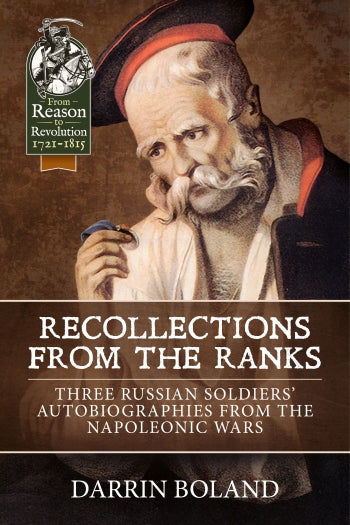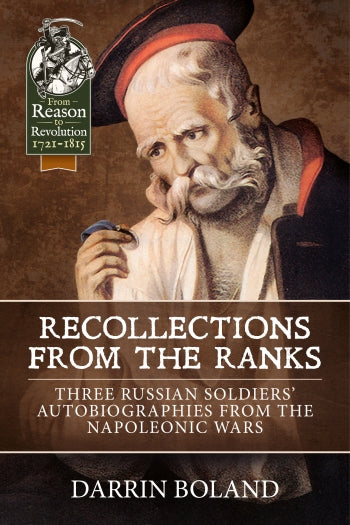Entoyment Wargaming and Hobby Centre
Recollections from the Ranks
Recollections from the Ranks
Low stock: 1 left
Couldn't load pickup availability
Out Of Stock!
We will notify you when this product becomes available.
From Napoleon’s invasion of 1812 to the Wars of Liberation and beyond, seen from the common Russian soldier’s perspective. This volume is composed of three accounts previously unavailable in English. Detailed annotations illuminate a seldom understood army and nation during one of the pivotal episodes in European history. Pamfil Nazarov was a peasant from Tver who was conscripted in 1812 but rather than head east to join the army in its campaign against Napoleon, he travelled to St. Petersburg and was selected for the Russian Imperial Guard. As a Jäger of the Finland Regiment he went on to witness such events as the Battle of Leipzig and the fall of Paris. Nazarov’s memoirs also briefly describe the Russo-Turkish War of 1828, the Polish Uprising of 1830, and culminate in his voluntary induction into the monastic ranks of the Orthodox Church. Ivan “Menshoy” Ostroukhov similarly came from the peasantry of Tula and had prospects as a merchant before his household was chosen to produce a conscript. Also like Nazarov, he was inducted into the Guard, serving with the Uhlans as a choral singer in its reserve squadron. His autobiography ends prematurely, possibly due to the author’s death. Rafail Zotov, on the other hand, was a formally educated noble from St. Petersburg who could speak German and was familiar with astronomy and literature. He volunteered to serve as a junior officer in the militia when the French invaded. His preconceived notions of war and military service were challenged, and his abilities as a leader tested by his experiences on the hard marches through the north to the battles of Polotsk and Berezina and on to the siege of Danzig in 1813. Russia has a long and rich history and its self-identity is built on many episodes and myths, but none are so often dramatized, by Russians and Westerners alike, as Napoleon’s invasion in 1812. Now for the first time the voice of the common Russian caught up in those continental events is available in the English language. Contains an introduction by the translator, footnotes throughout with citations and bibliography, and multiple illustrations of relevant persons and events.
Share


